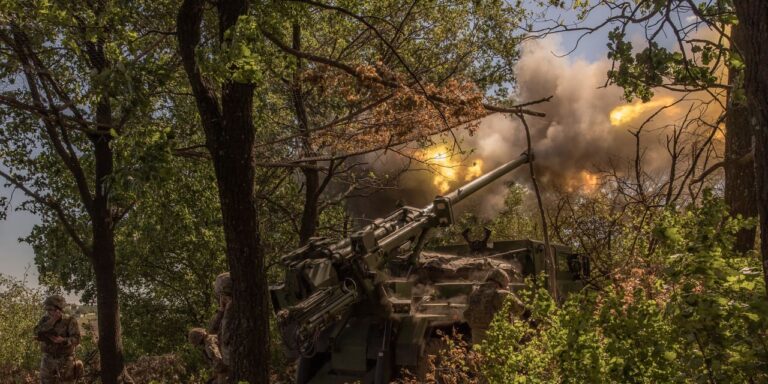About the author: Abishul Prakash Geopolitical strategist tGeopolitical Business, Strategic consulting firm.
Israeli Prime Minister Benjamin Netanyahu suggested in a recent interview that a new war between Israel and Hezbollah could be on the way. Netanyahu said that once operations in Gaza are completed, Israel plans to move its troops north to the border with Lebanon, where Hezbollah is based. The new strategy comes after Israel approved plans to launch a ground offensive into Lebanon to fight Hezbollah, pitting Israel against the best-trained, best-funded and best-equipped Iranian proxy.
Israel and Hezbollah may be able to avoid war, but if they can’t, a clash between them could spark a broader regional war in the Middle East that could last for an uninterrupted period.
In the worst case scenario, the Israel-Hezbollah conflict could be just one of several that ignite over the coming summer. The world is entering uncharted territory as multiple tensions reach or cross the point of no return.
In Asia, China and the Philippines are clashing in the South China Sea, with a Chinese Coast Guard vessel ramming and damaging a Philippine fishing boat. While this may seem like a domestic issue, Philippine President Ferdinand Marcos Jr. has warned that if any Filipino citizens are killed, he could invoke the mutual defense treaty with the United States to force the US to defend the Philippines.
Advertisement – Scroll to continue
In Europe, the conflict over Ukraine is entering a new phase as the president of Serbia warns of imminent World War III. Nuclear weapons are again moving across continents: Russia says it has placed nuclear weapons in Belarus, and NATO is considering drawing more from its vaults. France has proposed using its nuclear arsenal as part of a broader European defense strategy, and may even deploy French nuclear weapons in allies.
It’s not just physical wars that risk intensifying in the summer heat.
The European Union is moving to impose new tariffs on Chinese-made electric vehicles, raising duties on some imports by nearly 50%, raising alarm bells as China threatens a trade war with the EU.
Advertisement – Scroll to continue
The possibility that the International Criminal Court will recognize some of Russia’s cyber attacks against Ukraine as “war crimes” could mean a new showdown between nations over the system.
For many years, the world has prioritized economics and development over geopolitics and tried to avoid war. But now geopolitics takes precedence over everything else. Multiple conflicts have snowballed, involving major world powers and threatening global stability amid a volatile economic climate.
The global economy is in a tailspin. The International Monetary Fund warns that global public debt is approaching 99 percent of global GDP. Many capitals are exhausted by the current crisis, their treasuries depleted, and ill-prepared for the new economic pressures that a sudden war would bring.
Advertisement – Scroll to continue
Countries such as the United Arab Emirates and Saudi Arabia, which have been bright spots of stability in a dark and unstable climate, now find themselves in a bind as geopolitical forces push them to act beyond their borders. They can no longer guarantee their neutrality, creating a world without “safe zones.”
Behind all this are the ambitions of some countries, such as China and North Korea, that see the possibility of a new war as an opportunity. They may be in a position to benefit from an enemy state, like the United States, being overstressed (and overly endangered), because they may think that the time has come to take action, such as invading a sovereign democracy.
The summer of war will lead the world into a new environment and force global stakeholders to reassess their strategies.
Advertisement – Scroll to continue
First, investors may find that once-safe strategies now need to be viewed in geopolitical terms. Economic, technological and territorial disputes are rife and do not just affect the opposing parties. For example, Indonesia recently announced new tariffs of up to 200% on cheap Chinese imports to protect Indonesian companies from the effects of the US-China trade war.
Additionally, wartime strategies such as stockpiling could disrupt the global economy. Norway, for example, plans to stockpile more than 30,000 tonnes of grain by the end of 2025. Further war could trigger a global resource war, with demand for critical resources outstripping supply. As geopolitical paranoia grips capitals, the entire resource industry, from exporters to refiners to shippers, may come under pressure to change their behavior.
Multinational companies will also be forced to adapt to the new geopolitical environment. That could mean building strategic relationships, as was the case with G42, an Emirati AI company that received a $1.5 billion investment from Microsoft as part of a U.S. government deal. It could also mean following the path of British pharmaceutical company AstraZeneca, which built its own supply chain in China amid tensions between the U.S. and China. War will force all companies to adapt to constant disruptions.
Whatever nations’ goals, from development to growth, they risk becoming trapped in rising wars. Governments must act in a new way. If nations continue to prioritize their own interests over the global interest, chaos and destruction loom.
It is the responsibility of nations, large and small, to build new coalitions that reject war in all its forms and seek a new international architecture that allows for peaceful coexistence despite frictions and differences.
But those who seek stability and security should be warned: the taboo against war is weaker than ever. This is not a paradigm shift. This is a metamorphosis. This represents an irreversible change in the structure of the world and in the destiny of those with global interests.

